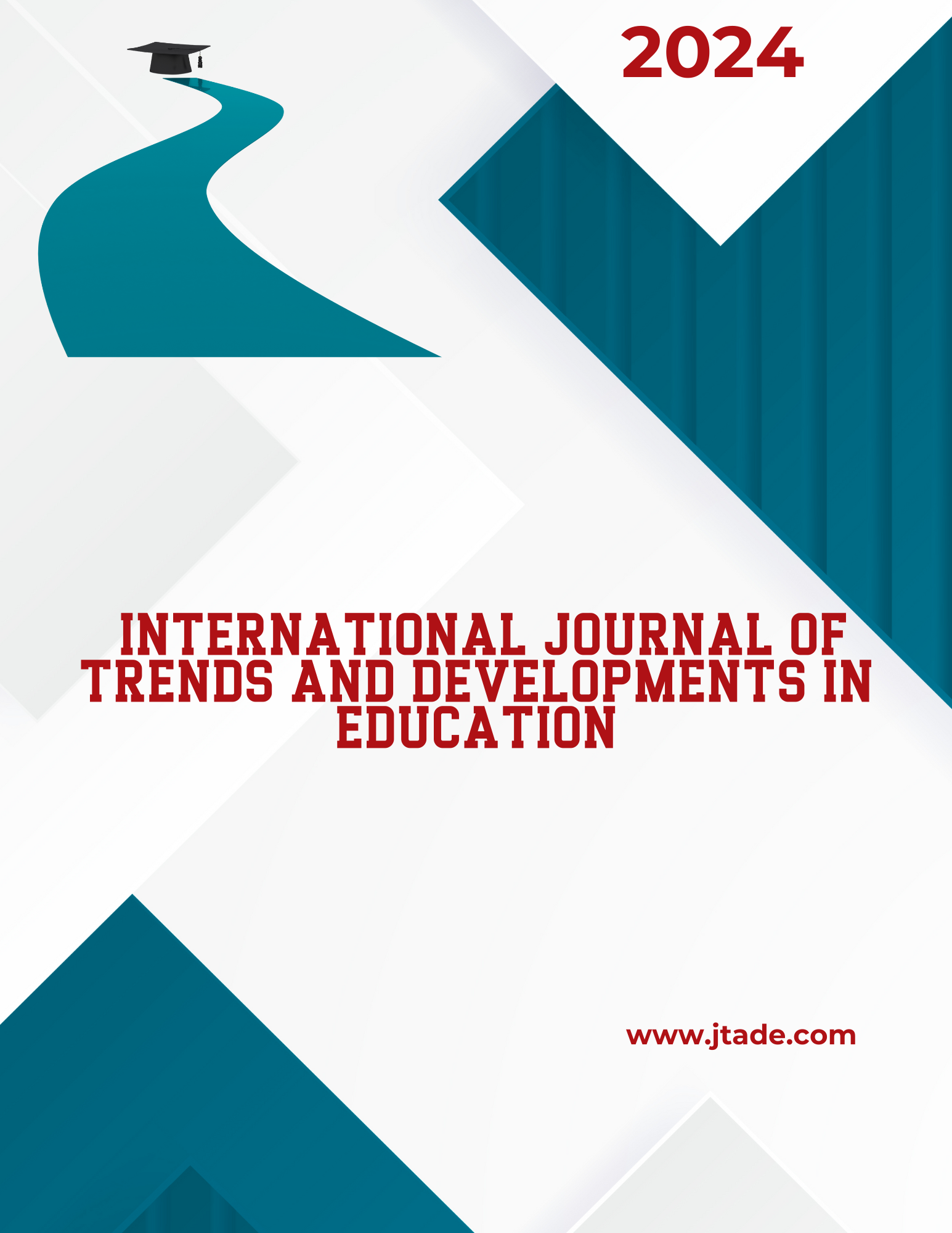Research article | Open Access
International Journal of Trends and Developments in Education 2023, Vol. 3(2) 1-14
Teacher's Opinions on the Use of Metaverse
pp. 1 - 14
Publish Date: December 31, 2023 | Single/Total View: 81/120 | Single/Total Download: 90/128
Abstract
This study is aimed to explore the opinions of teachers about the use of Metaverse in an educational evironment. Several questions will be answered regarding the use of metaverse in th classroom by teachers such as their understandig of metaverse and their confidence in utilizing it in the classroom. The study group of the research consists of 11 teachers who are teaching in one of the central secondary schools of SAKARYA province in 2022, determined by the convenience sampling method, which is one of the purposive sampling method. The reason for choosing this study group is that the sample is near the researcher and easy to reach, thus giving speed and practice for the research. In order to prevent the identity of the teachers in the research group from being known, and in accordance with the ethical rules, the teachers were assigned numbers such as Ö1, Ö2, Ö3, Ö4, Ö4, Ö5, Ö6, Ö7, Ö8, Ö9, Ö10, Ö11. A case study, one of the qualitative research methods, was used as the research model. In the study, the analysis of the interview data was made using the content analysis method. It was concluded that the teachers had heard about the concept of metaverse only recently, their self-efficacy in using metaverse varied, and had different applications of metaverse in the learning environment.
Keywords: Metaverse, Virtual Reality, Teachers’ Opinions
APA 7th edition
Saad, N., Gedikbey, S., & Bayrakci, M. (2023). Teacher's Opinions on the Use of Metaverse. International Journal of Trends and Developments in Education, 3(2), 1-14.
Harvard
Saad, N., Gedikbey, S. and Bayrakci, M. (2023). Teacher's Opinions on the Use of Metaverse. International Journal of Trends and Developments in Education, 3(2), pp. 1-14.
Chicago 16th edition
Saad, Nour, Seckin Gedikbey and Mustafa Bayrakci (2023). "Teacher's Opinions on the Use of Metaverse". International Journal of Trends and Developments in Education 3 (2):1-14.
Anney, V. N. (2014). Ensuring the quality of the findings of qualitative research: Looking at trustworthiness criteria. Journal of Emerging Trends in Educational Research and Policy Studies (JETERAPS), 5(2), 272–281.
Büyüköztürk, Ş., Çakmak, E. K., Akgün, Ö. E., Karadeniz, Ş., & Demirel, F. (2008). Bilimsel araştırma yöntemleri. Pegem Akademi.
Creswell, J. W. (2017). Eğitim araştırmaları. EDAM Eğitim Danışmanlığı ve Araştırmaları Merkezi.
ÇAVAS, B., ÇAVAS, P. H., & CAN, B. T. (2004). Egitimde sanal gerceklik. TOJET: The Turkish Online Journal of Educational Technology, 3(4).
Ertürk, M., & Şahin, G. (2019). Second Life oyununun sosyal bilgiler öğretiminde deneyimsel öğrenmeye yönelik bir model olarak kullanılması. Hacettepe Üniversitesi Eğitim Fakültesi Dergisi, 34(2), 434-459.
Kaleci, D., Tansel, T. E. P. E., & Tüzün, H. (2017). Üç Boyutlu Sanal Gerçeklik Ortamlarindaki Deneyimlere Ilişkin Kullanici Görüşleri. Türkiye Sosyal Araştırmalar Dergisi, 21(3), 669-689.
Lincoln, Y. S., Guba, E. G., & Pilotta, J. J. (1985). Naturalistic inquiry. International Journal of Intercultural Relations, 9(4), 438–439. https://doi.org/10.1016/0147-1767(85)90062-8
MacCallum, K., & Parsons, D. (2019, September). Teacher perspectives on mobile augmented reality: The potential of metaverse for learning. In World Conference on Mobile and Contextual Learning (pp. 21-28).
Mystakidis, S. (2022). Metaverse. Encyclopedia, 2(1), 486-497.
Park, S. M., & Kim, Y. G. (2022). A Metaverse: taxonomy, components, applications, and open challenges. IEEE Access.
Patton, M. Q. (2014). Qualitative research & evaluation methods: Integrating theory and practice. Sage publications.
